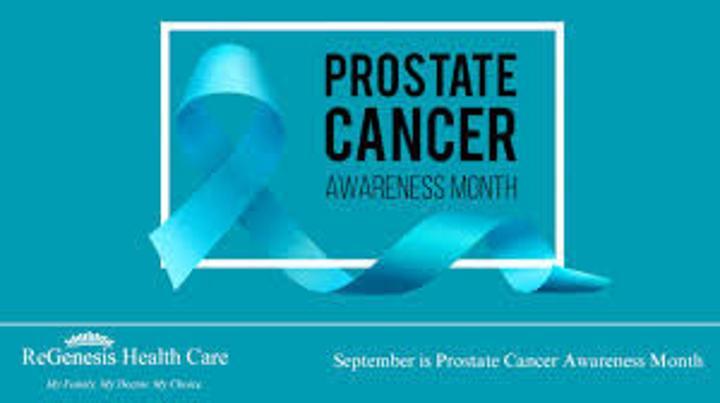Africa-Press – Zimbabwe. PROSTATE cancer is silently killing Zimbabwean men.
It is the leading cancer among our fathers, husbands, brothers and sons, yet it receives little attention, little advocacy and almost no sustained awareness.
Every October, the country turns pink for breast cancer, but when it comes to men’s health, silence prevails.
While the rest of the world marks September as Prostate Cancer Awareness Month, Zimbabwe lets it pass unnoticed.
This silence is costing lives and it is time we wake up.
Prostate cancer is a major health concern.
Globally, one in seven men will be diagnosed with prostate cancer during their lifetime.
Every three minutes, a man is diagnosed and every 17 minutes, a man dies from it.
In Zimbabwe, it remains the most common cancer among men, responsible for significant illness and death.
Men are being lost to a disease that is treatable if detected early.
Yet the lack of awareness, education and access to screening means that many only seek medical attention when the disease has already advanced beyond cure.
The tragedy is not only in the statistics, but also in the cultural barriers that prevent men from taking their health seriously.
Too many men avoid doctors, preferring silence over uncomfortable conversations.
Visiting a clinic, especially for something as private as a prostate examination, is often seen as unnecessary or even shameful.
This silence is deadly.
Men can spend hours researching the latest car or phone while spending no time to consider their own health, even when it could save their lives.
One of the biggest problems is ignorance.
Too many Zimbabwean men simply do not know their risks.
Prostate cancer rarely touches men under 40, but once you cross 50, the danger rises sharply.
Being African alone puts men at a higher risk than most other groups.
Add family history — a father or brother with prostate cancer, or even a relative with breast cancer — and the odds climb even higher.
What we eat also matters: diets loaded with fat and starved of vegetables fuel the fire.
These are not distant statistics; they are realities shaping the health of Zimbabwean men every single day.
Equally concerning is the lack of understanding about symptoms.
In its early stages, prostate cancer is silent.
Men may feel completely well while the disease slowly develops.
Trouble passing urine, a weak or painful stream, waking up at night to urinate, blood in urine or semen, even problems in the bedroom like erectile dysfunction or painful ejaculation — these can all be signs.
By the time symptoms appear, the cancer may already be advanced.
Yet many men dismiss them, blame them on age or witchcraft, or reach for home remedies.
In doing so, they lose precious time and prostate cancer gains the upper hand.
The good news is that prostate cancer can be detected early through screening.
Tests such as the prostate-specific antigen (PSA) blood test and digital rectal examination make it possible to identify the disease before symptoms develop.
In some cases, modern diagnostic tools can even predict prostate cancer before it takes hold.
Unfortunately, in Zimbabwe, these services are not widely accessible or affordable.
Many men do not know where to go for screening and those who do often face high costs.
This lack of access represents one of the biggest gaps in our fight against prostate cancer.
If we are to save lives, awareness and advocacy must go hand-in-hand with improved access.
Screening services must be made available, affordable and routine for men across the country.
Educational campaigns should target not only men but also their families, because it is often wives, children or siblings who encourage men to seek medical help.
Policymakers, health professionals, corporates and non-governmental organisations must all play a role in normalising conversations about prostate cancer, just as breast cancer advocacy has been normalised over the years.
Every Zimbabwean man over 50 should consider regular screening, and those with a family history should begin even earlier, around age 40.
Alongside screening, lifestyle changes can help reduce risk.
A healthy diet rich in fruits and vegetables, regular exercise, limited alcohol intake, and a proactive attitude towards personal health can make a real difference.
Prevention and early detection remain our most powerful weapons.
This September, we have an opportunity to change the narrative.
Instead of letting the month pass unnoticed, we can use it as a catalyst to build a culture of year-round cancer awareness.
Let us commit to conversations that do not end when the calendar flips from September to October.
Let us recognise that men’s health matters too and that prostate cancer deserves the same national attention as other high-profile diseases.
The fight against prostate cancer is not just a medical issue; it is a social one.
It requires breaking cultural taboos, prioritising men’s health in public policy and ensuring that no man suffers or dies simply because he did not know or could not afford to act in time.
Zimbabwe has the potential to lead in this fight, but only if we acknowledge the urgency.
Prostate cancer is silently taking our men.
As Talk Cancer Zim, we are here to give you a wake-up call by speaking openly, advocating strongly and acting collectively. We can save countless lives.
Men’s health matters and the time to act is “NOW!”
For More News And Analysis About Zimbabwe Follow Africa-Press






